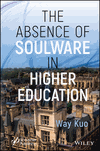Pitfalls of Misaligning Whole-Person Education
Summary
In ancient China, a whole person might refer to someone who had mastered the Six Arts. When Ron Miller first proposed the whole-person education concept, he aimed to develop a person's emotional and cognitive abilities so that a young student could be transformed from a self-centered person into a responsible adult. Chinese society likes to boast of its commitment to ethics, considering it a sublime standard. The whole-person education proposed by universities in Hong Kong and Taiwan seems to lack substance, failing to provide even basic training in social manners and civil duties. A blind spot in whole-person education is neglecting to nurture a sense of responsibility. Relatively speaking, communities across the Strait seldom promote social development nor pursue professionalism in their education curriculum. The formative education designed for young people by societies across the Strait encourages starting early with basic tool-handling skills.



